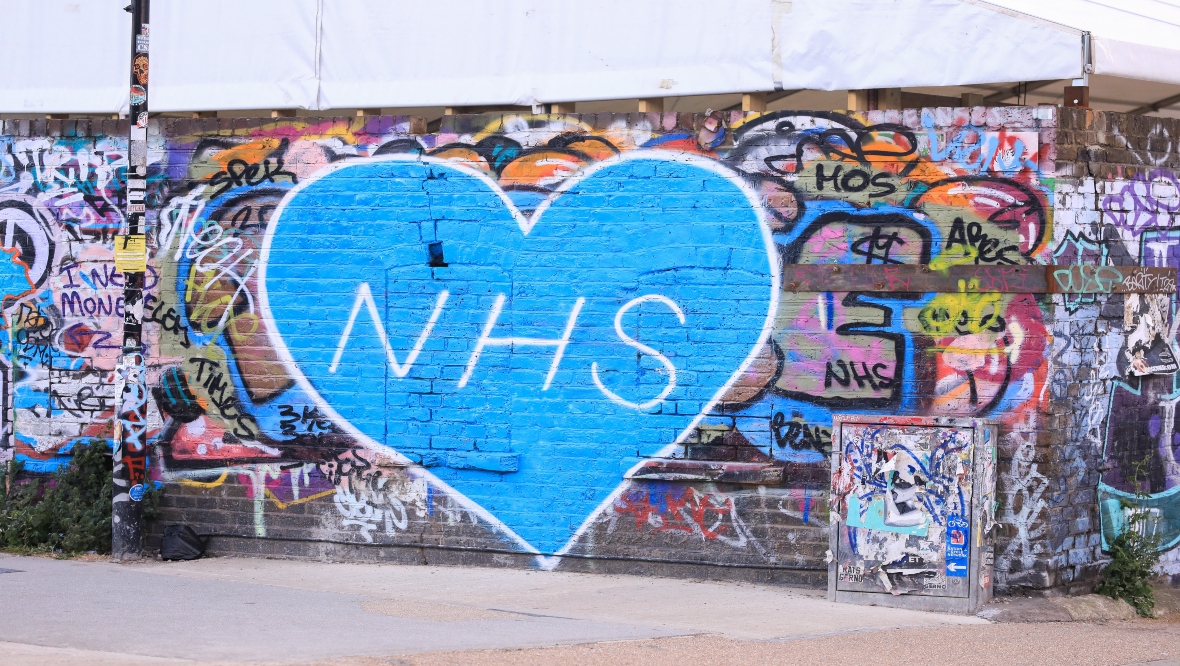A report by the British Medical Association (BMA) has found that nearly a third of ethnic minority doctors surveyed considered leaving the profession due to racism and discrimination.
In its findings, the report suggested that medicine is a profession in danger of a “mass exodus” of non-white doctors due to persistent and often-intolerable levels of racism faced at a personal and systemic level.
Scottish doctors told of how they had been discriminated against in the workplace, by management as well as by patients.
Nearly one-third of 2,030 UK doctors surveyed said they had considered leaving the NHS or had left since 2020 due to racial discrimination, with 42% of Black and 41% of Asian doctors having considered leaving or already having left.
“I have seen no interest in improving racism equality in my career…”
A specialty doctor of mixed ethnic background in Scotland
One specialty doctor of mixed ethnic background in Scotland said they had seen “no interest in improving racism equality” throughout their career in British hospitals.
“In general, white colleagues are reluctant to even acknowledge that racism exists and will often undermine and explain away concerns of they are raised,” they said.
Almost half (49%) of respondents described having been subjected to discriminatory comments from senior doctors.
And 41% described derogatory comments from patients regarding their ethnicity, country of origin, heritage, name, and accent.
“I have an uncommon name, but it isn’t impossible to say. Many people (management included) fail to pronounce it properly despite me telling them how it is pronounced.”
A medical consultant of mixed ethnic background in Scotland
The survey was put to doctors and medical professionals from Scotland, England, Northern Ireland and Wales in an effort to delineate discriminatory experiences faced in medical workplaces, institutional barriers to career progression, and the building mental health pressure on ethnic minority doctors.
The report identifies what it calls a “systemic failure” which will need “every health organisation to work together” in order to bring structural racism to an end.
“…he treated other white students significantly better, and simply ignored my existence.”
A medical student of Asian descent in Scotland
“I had tried to participate in one of the surgeon’s surgery and wasn’t spoken to the entirety of two operations. However, on other occasions, to a white male, the same surgeon was very willing to teach and explain the operation throughout,” said one medical student of Asian descent in Scotland.
“From my knowledge, they did not know each other beforehand and had no personal history. I could only put it down to my race, as he treated other White students significantly better, and simply ignored my existence,” they said.
It also showed that overseas qualified doctors experienced racism at a higher volume than doctors trained in the UK.
Meanwhile, 84% of respondents who qualified overseas said they had experienced racist incidents in their workplace in the last two years, compared to 69% of respondents who trained in the UK.
“I stayed over my scheduled time to help with a patient and this was commented on as not having boundaries, whilst the same act by a Caucasian colleague a few weeks later was lauded by the same person as ‘conscientious’.”
A Pakistani medical consultant in Scotland
Of those who reported experiences of racism, 58% said that it had a negative impact on them, including being viewed as a troublemaker, being made to feel like the report was an overreaction, being overlooked for progression opportunities, or being made to feel like the incident was their fault.
Dr Chaand Nagpaul, BMA’s chair of council, said: “The NHS was built on the principle of equality of care for patients whoever they are, but this report shows that the NHS is shamefully failing in this principle for its own doctors, with those from ethnic minorities reporting alarming levels of unfair treatment and racial inequality at work.”
He called it “deeply concerning” that so many respondents had suffered through racist experiences in silence, for fear of being seen as troublemakers and oversensitive, or that the incident in question would not be investigated.
Dr Nagpaul added: “Our report depicts the scale of their suffering – being overlooked for promotion, forced to change their chosen specialty, feelings of isolation and exclusion.
“With 60% Asian and 57% Black respondents seeing racism as a barrier to career progression, patients are failing to benefit from the full skills and talent of an ethnically diverse workforce.
“What all this adds up to is a tragic waste of potential as doctors of ethnic minority are held back, dragged down or simply walk away from the profession.”
Health secretary Humza Yousaf said: “There is no place for racism or any other form of discrimination in the NHS – or anywhere else. The Scottish Government is firmly committed to supporting a more diverse, inclusive, and equitable health and social care workforce, however we recognise that structural and institutional barriers continue to exist.
“I welcome this report and work has been underway for some time to listen to and address staff concerns, including a new NHS ethnic minority forum.
“We’re building an inclusive culture within the NHS and want to attract and retain talent from a diverse range of backgrounds that is fully reflective of our society.
“Support is in place for anyone in the NHS who feels they have been treated unfairly and I would urge anyone who has any concerns to make those concerns known. Support available includes the NHS Scotland Bullying and Harassment Workforce Policy which provides a supportive environment to staff seeking an early resolution to concerns about unacceptable behaviour and is also a formal mechanism to address unresolved issues.
“There is more work to be done, and I intend on raising the issues highlighted in this report with Health Boards across Scotland. I am pleased to see that the survey highlights examples from our NHS where staff needs are taken into account and praise for training initiatives including the STEPS course for GPs in Scotland.”
Follow STV News on WhatsApp
Scan the QR code on your mobile device for all the latest news from around the country


 iStock
iStock

























